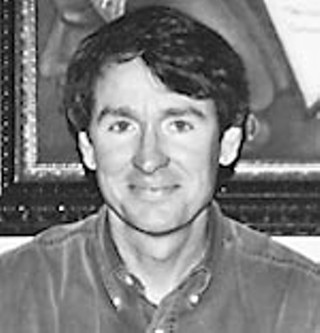Book Review: Readings
Ben Fountain
Reviewed by Michael Yang, Fri., Aug. 25, 2006

Brief Encounters With Che Guevara: Stories
by Ben Fountain
Ecco, 229 pp., $24.95
We read stories about travel for the same reasons we visit other countries: to explore cultures and histories, to glimpse how other people live, to gain a fresh view of ourselves and how we are perceived. In Ben Fountain's collection of short stories, Brief Encounters With Che Guevara, the predominantly American protagonists are wide-eyed and naive, displaced in dangerous countries like Haiti and Sierra Leone, where they become involved in such dramatic situations as smuggling operations, illegal land deals, and guerrilla revolutions. The people traveling to these countries range from the disillusioned aid worker struggling to help the poor to the seedy golf pro who, despite any fleeting moral qualms, lives off the largesse of the corrupt government of Myanmar. The stories share a common interest in the insularity of Americans and how they cope abroad. And despite any effort they make to fit in and to make a difference in the countries, they invariably prove their own foreignness in the foreign environments.
Indeed, one of the most compelling aspects of the collection is how great the divide is between the Americans and the populace. When an ornithologist is captured by Colombian rebels in "Near-Extinct Birds of the Central Cordillera," his life is threatened a number of times, but his concern soon shifts from worrying about being shot to the rare parrot in danger of extinction. Throughout the stories, Americans are never hassled by authorities, never searched at customs, never questioned by the various governments. Within the stories, their entitlement can diffuse the dramatic tension. There is rarely any real concern for the safety of the central characters because of how effortless it is for them to escape back home. Fountain writes: "But Mason was white and he had a good face; the whole thing was so absurdly easy he could have wept, though what he did on getting to his hotel room was switch on the cable to MTV and bounce on the bed for a couple of minutes."
But this entitlement also reveals a truth about their situation and why it is impossible for them to evince change; despite their efforts, they are simply not part of the countries they visit. Only one story centers on a native of the country, a Haitian fisherman who uncovers stashes left by drug dealers, and it is no accident that he is the only character who seems in any palpable danger and the only one who is able to make any real difference in his community.
While the central characters are convincingly shaded, the side characters can be more problematic, sometimes verging on the predictable. While the corrupt police chief, the exploitative businessmen, and the articulate revolutionary who moonlights as a doctor might be realistic, they seem too familiar, not distinct enough to be specific individuals. A surprising detail could spin the characters into an unusual direction, enhancing the mysteries of the situation. The familiarity in both the characters and the locales can lead to a generalized view of the world, where we see the countries as travelers instead of insiders, where many of our assumptions seem confirmed, not deepened. This can set up situations such as in "The Good Ones Are Already Taken," when the Green Beret husband returns from Haiti embroiled in a voodoo marriage. A vague unease sets in. Does a story about Haiti have to head there? Still, Fountain is able to make the story entertaining, and despite any qualms about the depths of his examinations, he is always able to compel the reader to turn the page and discover what happens next.
A number of the stories in this debut have been published in some of the most well-known literary journals and magazines, such as Zoetrope, Harper's, and The Paris Review, and Fountain himself is fiction editor of Southwest Review. It would be impossible not to acknowledge both how well-crafted they are and the sharpness and cleanness of his prose. And among the eight works, Fountain seems to be exploring something vital, his characters acting as acknowledgments of the global community and the complications of being an American in the world at large. The work of a talented writer pursuing compelling and complicated themes, Brief Encounters With Che Guevara is a considerable step in a career worth following.









